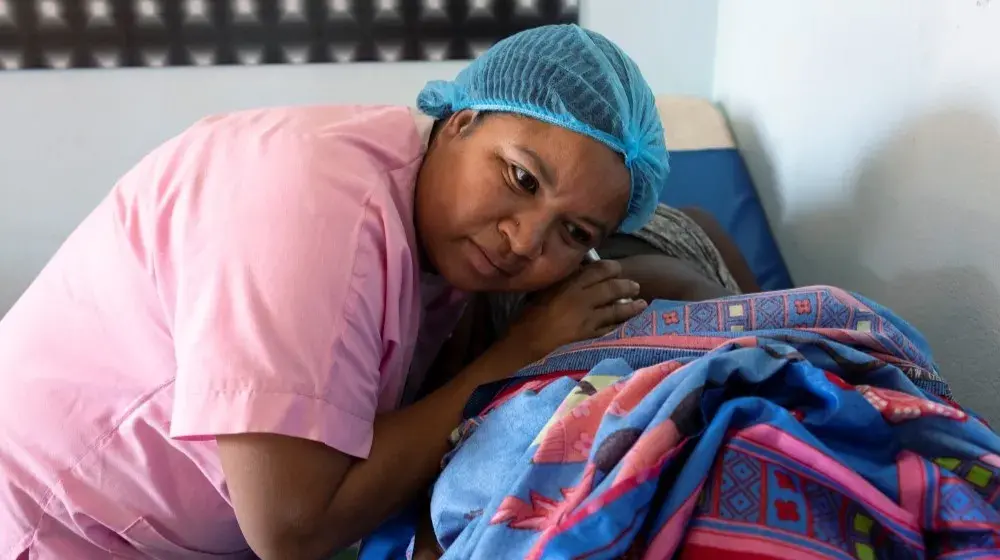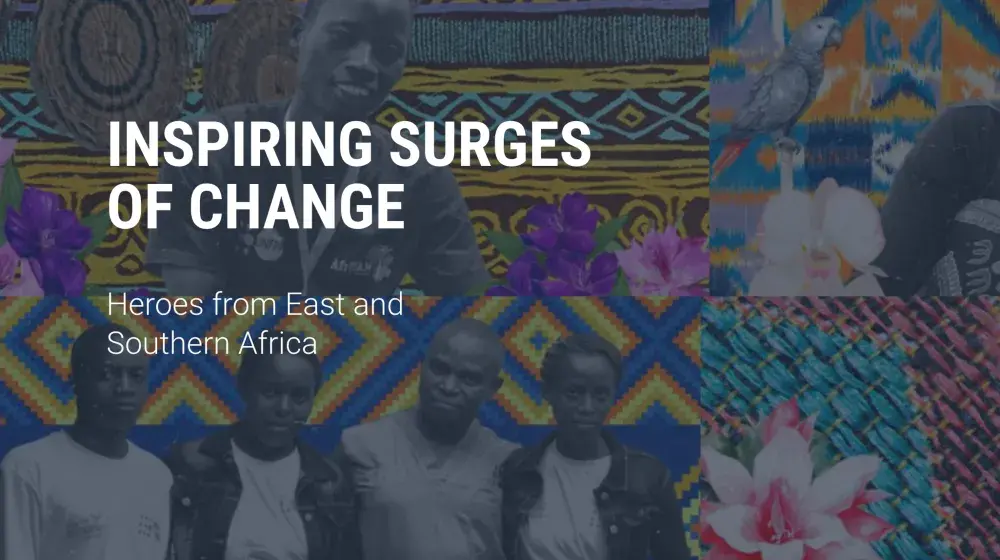ABUJA, Nigeria – The Federal Government of Nigeria and the United Nations Population Fund (UNFPA) in Nigeria signed a Memorandum of Understanding to help strengthen the National Primary Health Development Agency (NPHCDA) over the next two years. The NPHCDA is a Federal Ministry of Health parastatal dealing with maternal health commodities and drugs.
NPHCDA Executive Director Dr. Ado Mohammed signed the memorandum on behalf of the Federal Government, while UNFPA Country Representative Victoria Akyeampong signed on behalf of UNFPA.
NPHCDA has recruited an additional 5500 midwives to cater for the needs of pregnant women. Conditional cash grants are given to women at the community level to increase uptake of and demand for services, including in hard-to-reach communities, Dr. Mohammed said. These steps have resulted in more communities participating in the MSS. The Agency intends to scale up the intervention to an additional 459 Local Government Council Areas, he said.
Evidence has shown that the commodities save lives. The problem, he said, is that people are not necessarily being reached with the drugs. Nigerian President Goodluck Jonathan, who chairs the UNCC, introduced $3 million counterpart funding for the commodities, and with the signing of the MOU this has increased to $8.5 million over the next two years, for the provision of commodities and capacity building. The commodities are to be distributed to all through the Subsidy Reinvestment and Empowerment Programme (SURE-P) and the Midwives Service Scheme (MSS).
At the London Family Planning Summit held in July 2012, the Nigeria Government committed to increasing domestic funding for reproductive health commodities by an additional $8.35 million annually from 2012 to 2014. This will occur through the SURE-P on Maternal and Child Health (SURE-P MNCH), thus increasing equity and access for the poorest. It will include the training of more frontline health workers to be able to provide a wide range of family planning methods, with an emphasis on long-acting methods.
The MoU followed several consultations with partners, including NPHCDA, SURE-P MCH, FMoH, over 15 months.
UNFPA Resident Representative Ms. Akyeampong thanked the partners involved, including USAID and the UK’s Department for International Development (DFID). The event followed the Government of Nigeria’s pledge to use SURE-P to inject the health system with the necessary capital, amounting to $8.35 million annually from 2012-2014. This will help double the number of health facilities covered by MSS, as well as to recruit, train and retain over 75,000 health workers, and to reach 1.2 million pregnant women and their children with essential health services.
UNFPA pledged $2.5 million annually for the period 2013-2017, to support the procurement of additional Maternal and Newborn and Child Health (MNCH) commodities.
Ms. Akyeampong said the Government of Nigeria and its partners need to increase the uptake of Reproductive Health and Essential Life-Saving Commodities as a national priority. This could lead to the averting of around 30,000 maternal deaths and about 1.5 million child deaths, and over 700,000 mothers avoiding injury or permanent illness due to childbirth. She welcomed the Government’s pledge to continue to work in collaboration with partners to create an enabling environment through policy formulation and actions that support maternal and child health, using a costed National Strategic Health Development Plan (NSHDP) to drive all health interventions.
In addition, Ms Akyeampong recognised the Government’s commitment to advance efforts to achieve MDGs 4, 5 and 6, but said that to deliver for women and girls, there is a need for effective policies, innovative financial mechanisms, enhanced accountability, aligned and transparent budgets, and systems and programmes. There is also a need for a dedicated cadre of health workers who will work towards clear measurable targets to improve maternal health that will be continually monitored and reported.
~ Kori Habib, UNFPA Nigeria





